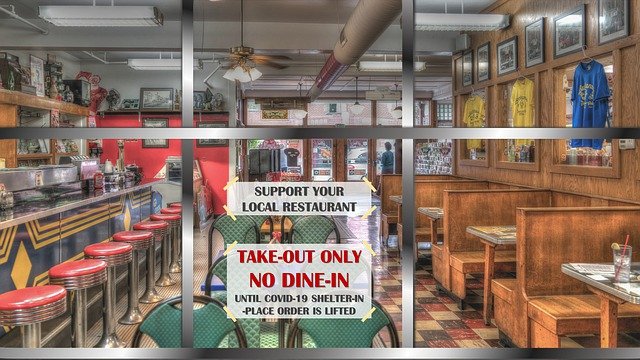@BryanRenbaum
MarylandReporter.com spoke with Restaurant Association of Maryland President and CEO Marshall Weston on Monday to get an update on how that industry is faring in the face of ongoing COVID-19 restrictions which limit occupant capacity. Weston addressed topics such as the recent lifting of the statewide dining curfew, improving health metrics, the need for fiscal stimulus, and the future of the industry.
MarylandReporter.com: It has been about a month since Gov. Larry Hogan lifted the statewide dining curfew which required restaurants and bars to close at 10 p.m. However, many local jurisdictions have implemented their own restrictions, such as prohibiting the sale of alcohol after 10 p.m. Nevertheless, have things improved since the statewide curfew was lifted?
Weston: I think that restaurateurs are optimistic with the reports in the media of more vaccines coming and more vaccinations actually happening. The weather certainly has not cooperated over the past several weeks. But when restaurants look ahead I think they are optimistic that more of the restrictions are going to be lifted and that they are going to have an opportunity to get on the road to recovery hopefully sometime this spring.
MarylandReporter.com: The state’s positivity and hospitalization rates are at their lowest levels since early November. Is it time for more restrictions to be lifted?
Weston: Yes. We believe so. Restaurants have demonstrated for nearly a year now that they offer safe and regulated space for people to gather. And throughout all of this time, there is no data that points to restaurants as being a source of COVID spread. So we would like to see the lifting of some of the restrictions. For example, increasing the table capacity size from six people to 12 people would be good to see. That would help restaurants accommodate parties that are a little bit larger. And that kind of thing helps to accommodate more customers but maintain a safe environment as we move on.
MarylandReporter.com: Do Maryland’s restaurants need more fiscal stimulus from the state and federal government in order to get through the pandemic?
Weston: Absolutely. This is not over for restaurants. When we talk about getting on the road to recovery-that might start in spring at best. In the summer is most likely. But that’s just the start of the process. And most restaurateurs think that it’s going to be two years or more before we get back to the point where we were pre-COVID days. So we look ahead and we understand that it is just not going to switch back to normal anytime soon. And that means that bills still need to be paid and we still have to keep employees on the payroll. So even though things are looking bright down the road, that does not mean that restaurants are out of the woods yet. We have to remember that restaurants have been one of the most severely impacted industries. And everything that a restaurant has been able to save up and plan for from previous years has been used up over this past year.
MarylandReporter.com: Late-last year a survey was released by your organization that predicted that 40% of the state’s restaurants were in danger of closing down within six months. Are those figures still accurate?
Weston: I would back that off a little bit. I would say we are probably closer to 35%. Maybe the best case scenario is going to be 30%. Over time we did get relief from federal, state, and local governments that have helped some of the restaurants that were on the line and could not decide whether to hang on or to close altogether. It did accomplish the goal of buying them a few more months of time. So we are now predicting that probably 30% to 35% of restaurants are going to close or have closed already.
MarylandReporter.com: What advice would you offer to the state’s policymakers moving forward?
Weston: Continue to recognize that restaurants have been one of the most severely impacted industries. And we have to be careful about policy and legislation that is being introduced in the General Assembly and how it is going to impact restaurants-not just in the near future but over the next several years. Now is not the time to be implementing changes and policies that could negatively impact restaurants and small businesses. It should all be about recovery efforts and helping people get back on their feet.




Recent Comments